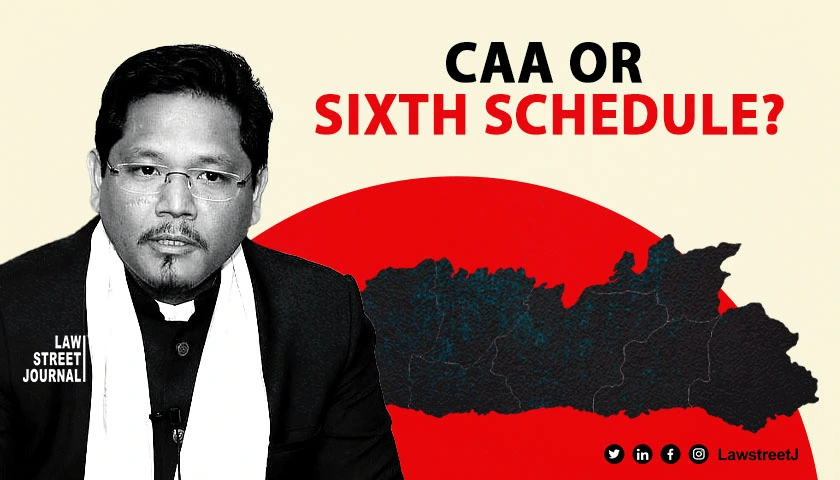New Delhi: Meghalaya's Chief Minister Conrad Sangma said that the concerns of the state regarding the Citizenship (Amendment) Act (CAA) have been addressed by the Union government. Sangma emphasized that most areas of the state come under the Sixth Schedule, which exempts them from the law.
"There are enough provisions in the CAA right now to protect us in one way, apart from the cutoff date that they've put and apart from the fact that 99.9 per cent is exempted... All these points are there. But we have still raised our concerns with the Government of India, and we have also asked for the extension of the Inner Line Permit (ILP) or any other mechanism that will help us address those concerns," he said, as quoted by PTI's report.
CM Sangma underscored the necessity of the ILP regime in the state, which regulates the entry of outsiders. In December 2019, the Meghalaya Assembly adopted a resolution to implement the Inner Line Permit (ILP) system in the state.
What is Sixth schedule of the Constitution?
The sixth schedule was designed to protect the indigenous and tribal groups by establishing and functioning autonomous district divisions known as autonomous district councils or ADCs. In 1949, the sixth schedule was enacted per Article 244 of the Indian constitution.
The sixth schedule provides autonomous district councils with the power of all the three governing bodies, legislature, judiciary, and executive. However, numerous shortcomings work against the favour of the non-tribunals living in the four states.
What is Article 244?
Article 244 of the Indian Constitution deals with the administration of scheduled areas and tribal areas. Article 244 (1) of the Indian Constitution defines Scheduled Areas as the areas defined so by the President of India and are mentioned in the fifth schedule of the Constitution. In India, there are 10 states having scheduled areas.
The Sixth Schedule under Article 244 (2) of the Constitution relates to those areas in the States of Assam, Meghalaya, Tripura and Mizoram which are declared as tribal areas and provides for District or Regional Autonomous Councils for such areas.
What is Citizenship (Amendment) Act?
CAA was passed in the Parliament on December 11, 2019. The 2019 CAA amended the Citizenship Act of 1955 allowing Indian citizenship for Hindu, Sikh, Buddhist, Jain, Parsi, and Christian religious minorities who fled from the neighboring Muslim majority countries of Pakistan, Bangladesh and Afghanistan before December 2014 due to "religious persecution or fear of religious persecution".











